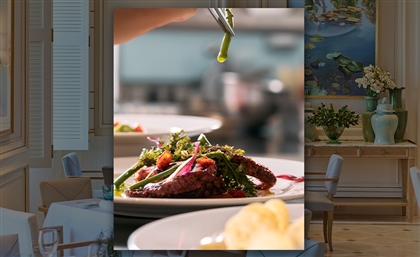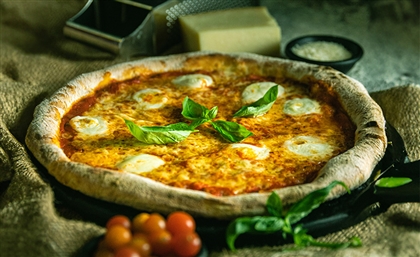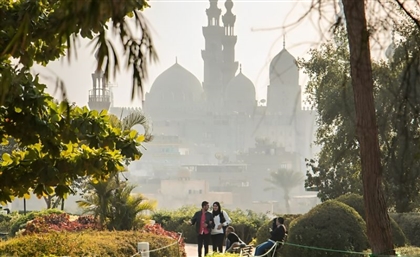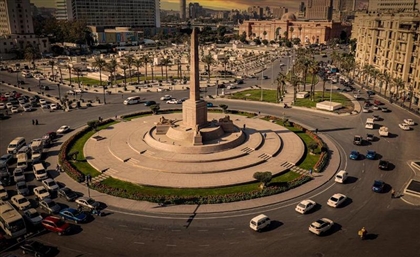Explore Authentic Nile Valley Cuisine at This Veritable Culinary Gem in the Heart of Cairo
Tareq Selim continues his escapades to discover Cairo's hidden authentic restaurants. This time, he takes a trip down the Nile's fascinating cuisines at Samar El Nil.
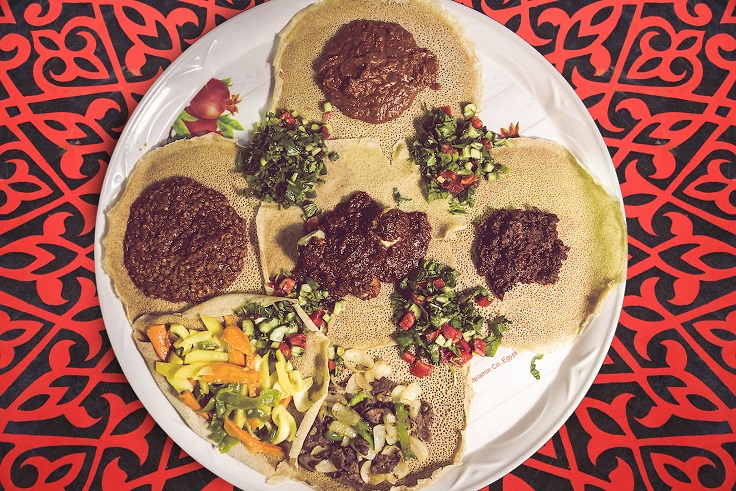
Cairo’s most intriguing spots are not always the most obvious to the passive onlooker. The real treasures of this ancient city aren’t what’s typically on the front cover of a guide to Cairo. It’s certainly not the pyramids or the sphinx; or Cairo Tower or the Citadel; and, despite the many who would disagree, not the world-famous Khan El Khalili market, or its more touristic quarters, at least. What truly makes Cairo the fascinating place that it is, is what lies hidden deep under its concrete canopies. The unknown and the mysterious. What deviates from the marked road.

One of these places is Samar El Nil. Perhaps the only restaurant of its kind in Cairo; not only in terms of the cuisine it offers, but also in its unique approach to dining and hospitality. Fardoos, a mother in her sixties, is the proud owner of the Ethiopian and Sudanese restaurant tucked away in a narrow side street close to Lebanon Square, which she took over seven to eight years ago. She used to eat there regularly and ended up she befriending the previous owner who decided she could no longer run the restaurant and decided to hand it over to Fardoos. “She offered to give me her business, I thought about it and saw that maybe, with the grace and blessings of God, it would succeed so I agreed and took it.”
One of the first things I noticed about Samar El Nil was the impeccable service which Fardoos provided. She welcomed me in as if I had been visiting an old relative. I felt like I was greeted into the house a childhood friend’s grandmother. The setting was very simple, with two slightly distinct sitting areas. One was a more traditional restaurant setting, with round tables and chairs, and the other more closely resembling a living room, with couches and short rectangular tables. It was by no means a luxurious place, but it wasn’t that kind of establishment anyway. Everything served its purpose sufficiently and unpretentiously. The simple, yet slightly kitsch décor, and basic furniture, gave the place a very humble, warm, and welcoming atmosphere. That was more than enough to feel comfortable.


We looked through the straight forward menu and ordered Tabsy, Shero, Elekka, a lentils dish, and the meat and chicken Ziqny dishes. Fardoos got straight to it in the kitchen, which could be seen from most angles in the sitting area. From the moment she threw the ingredients on to the sizzling butter ghee in the pans, I could already smell all the infused aromas and spices working their way through the restaurant. As time went on, my hunger grew more potent with the scents. The same feeling of waiting for Maghreb during Ramadan dawned on me as I waited for our orders to be done. The most exciting, yet excruciating part of the evening, was watching Fardoos pour all the finished dishes on the slices of Injera bread to be served to us on a large tray. Luckily, the food was served within half an hour. Not the time I ever expected considering the volume we ordered.


Fardoos effortlessly carried the entire tray to our table. The delicacies, sitting comfortably on their beds of dough, let off an appetising steam that carried their alluring flavours with it. I could clearly smell the buttery essences and see it in the shiny surfaces of the food. Immediately, we tore at the Injera bread and dipped into each of the offerings one by one. The first thing to hit me was the exceptional level of spices in the sauces and marination. Not herbal spices. The kind that make the mouth water and the eyes tear up. As a fan of all things that give the taste buds an extra hot kick, I was ecstatic. Between the different dishes were complimentary green salads to help break the spiciness.

The Tabsy, which instantly became my favourite, was a stir-fry beef and vegetable dish. Fried in butter ghee with onions and green bell peppers, the meat, which comes from Sudan, was tender and juicy. It meshed well with the soft Injera bread and wasn’t chewy at all. Along with the standard lentils dish was the Shero, a mashed lentils dish in a similar sauce. Both were mildly spicy and tasted similar, yet full of flavour. The Ziqny meat and chicken were no doubt the spiciest and most flavoursome of the bunch. The meat rendition was a number of small to medium-sized boneless chunks sitting in a thick clutch of the exquisite Ziqny sauce. The chicken version was slightly different. In the midst of the sauce were two boiled eggs. Instead of it being boneless, it included a leg and thigh. This wasn’t exactly my favourite plate, but that was only because of how excellent everything else on the tray was. The Elekka, the Ethiopian take on sautéed vegetables, consisted of carrots, potatoes, onions, and green peppers, made a tasty and fibrous side.
The grand finale of the night could not have been more perfect. Fardoos helped us settle our guts in true Ethiopian tradition. Of course, we would have liked to, but we simply weren’t able to finish our tray of extravagance, so Fardoos took it away to wrap up the rest for us to take home. She spent a while in the kitchen preparing something else. We weren’t sure what. After a few minutes of wallowing in our post-binge-eating comatose state, Fardoos came out with the perfect remedy: a pot of freshly brewed Jabani coffee.
Also available on the menu was Habashi coffee. “I buy the coffee beans fresh when they are still green, and I roast and grind them myself,” she . When I asked her if the beans came from Ethiopia, she exclaimed, “of course they are!” Being the coffee addict that I am, this was arguably the most exciting part of the evening. This wasn’t like any other pot of coffee I ever had though. The usual coffee pot, mugs, and sugar, were peculiarly accompanied on the tray by ginger, cinnamon, popcorn, and burning incense. I had never had all these things at once in one combination, but seeing as I was trying out a cuisine for the first time, I never hesitated for a second to fully indulge.
While I religiously drink my coffee black, I decided to experiment this time – without the sugar though. Coffee fascists will understand. I added a little cinnamon and ginger to my fingan and couldn’t say I didn’t enjoy the most unique cup of coffee I had had so far. Definitely something to try here for your first time. I went back to my old ways for my second cup, because for me, the only way to judge the true quality of a brew, is to have it without any impurities. A smooth, aromatic body with a strong aftertaste, this coffee was in all the right territories for me. The popcorn went quite well with it, in the same way any salty snack went well with a beer. Who knew it worked well for coffee too? With every tiny mug of coffee, we had till the bottom of the beautifully crafted and decorated pot, our bloated bellies gradually relaxed more and more.



‘Twas then time for me to sit down and talk with the old lady who made this such a great evening for us. How or where did she learn to cook this amazing food and so well too? I had to find out.
“There were a few things that I had ate at someone’s place so I asked how they made it,” Fardoos explained. For thirty years, she used to do business with Sudan and Ethiopia, and so she came to know and befriend many of their countrymen residing in Cairo, and through them, learned how to cook their food along the way. Amazingly, Fardoos never visited Sudan or Ethiopia. What really taught her though, was observing how her friend, the previous owner, prepared and cooked all the dishes. “When I first took over the restaurant, she was the one primarily making all the food. I watched her closely. She never showed me how, but out of my passion for making sure how to run this place properly and in the best way, I learnt all the tricks and, thank God, eventually knew how to do it alone.”
I asked her where most of her clientele usually came from. “Mostly foreigners. The Egyptians tend to be ones who travelled to Ethiopia before. The foreigners are largely from Europe and America and they never leave any leftovers on the trays. This is something which makes me very happy,” she remarks. Fardoos remembered this one time when an Ethiopian girl came to dine at Samar El Nil and expressed her shock at how the food was even better than in her home country.
She continued to talk about her approach to cooking and how important it was to her to always maintain high standards of hygiene and quality. When she was explaining what motivated her, this is where her true-to-heart piety shone through. “I don’t do this because of the customer but because I fear God. The customer doesn’t see me when I’m in the kitchen, but God is always watching me,” she says humbly.

Almost all of Samar El Nil’s ingredients come from Sudan and Ethiopia, even the lentils Fardoos uses to make the Shero. The only locally-sourced ingredients are the standard lentils for the un-mashed dish. One must know what to expect when paying Samar El Nil a visit. Do not expect to dine in luxury. Do not expect a thick menu with very sharp and well edited pictures. Do not expect a platoon of uniformed waiters to talk to you in script and obey your every command. The old and tried principle of the customer is always right does not apply here in the slightest. At Samar El Nil, the owner, the chef, and the head waitress are all one person. While Fardoos may do the job out of love for the craft, she also has a house and a family to support. Walk in with the values of mutual respect and gratitude in mind. You won’t be simply eating a meal at a restaurant business. You will be enjoying food at a place the owner treats as her own home and welcomes guests as if she had personally invited them. This is perhaps the most unique restaurant in Cairo, if not in Egypt. Treat it as such, unassuming and adventurous, as if you were going on a trek down the Nile into Ethiopia itself.
Address: 20 El Hassaniy Street, Mohandiseen, Giza.
Numbers: 01110566366 / 01224502967 / 01224502967
Photography by @MO4Network's #MO4Productions.
Photographer: Seif Mansour
- Previous Article #GetScene: 7 Awesome Instagram Photos This Week
- Next Article Meet the Egyptian Filmmaker Behind Our First Indie Feature in Cannes
Trending This Week
-
Apr 10, 2024




